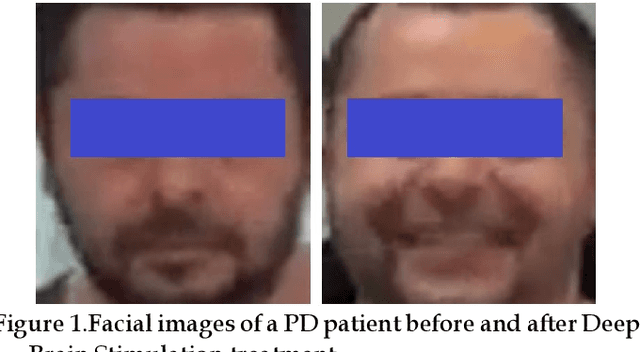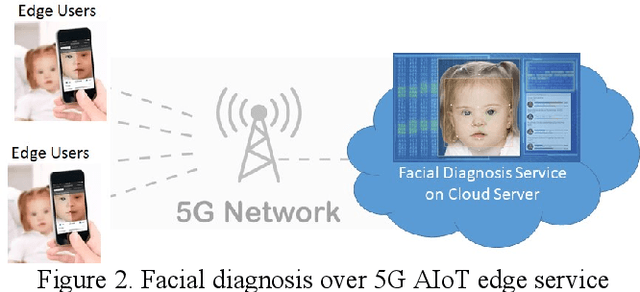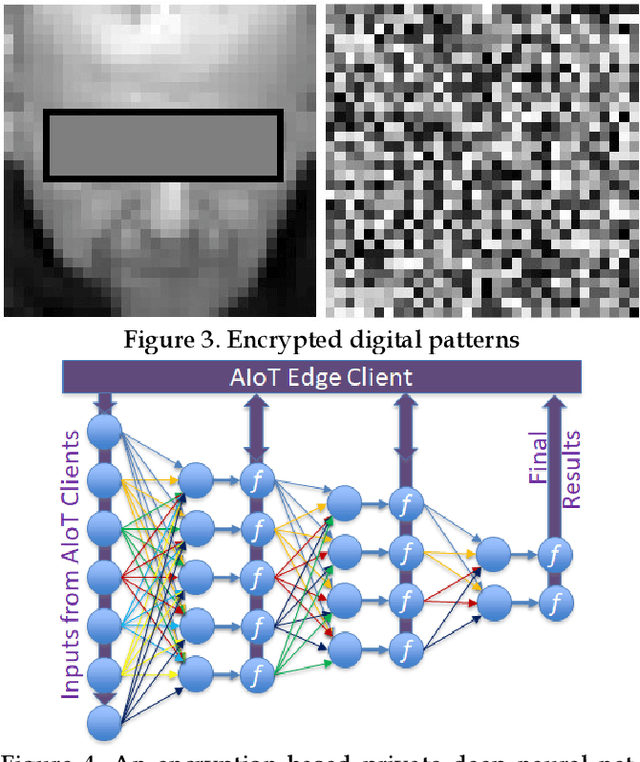Private Facial Diagnosis as an Edge Service for Parkinson's DBS Treatment Valuation
Paper and Code
May 16, 2021



Facial phenotyping has recently been successfully exploited for medical diagnosis as a novel way to diagnose a range of diseases, where facial biometrics has been revealed to have rich links to underlying genetic or medical causes. In this paper, taking Parkinson's Diseases (PD) as a case study, we proposed an Artificial-Intelligence-of-Things (AIoT) edge-oriented privacy-preserving facial diagnosis framework to analyze the treatment of Deep Brain Stimulation (DBS) on PD patients. In the proposed framework, a new edge-based information theoretically secure framework is proposed to implement private deep facial diagnosis as a service over a privacy-preserving AIoT-oriented multi-party communication scheme, where partial homomorphic encryption (PHE) is leveraged to enable privacy-preserving deep facial diagnosis directly on encrypted facial patterns. In our experiments with a collected facial dataset from PD patients, for the first time, we demonstrated that facial patterns could be used to valuate the improvement of PD patients undergoing DBS treatment. We further implemented a privacy-preserving deep facial diagnosis framework that can achieve the same accuracy as the non-encrypted one, showing the potential of our privacy-preserving facial diagnosis as an trustworthy edge service for grading the severity of PD in patients.
 Add to Chrome
Add to Chrome Add to Firefox
Add to Firefox Add to Edge
Add to Edge